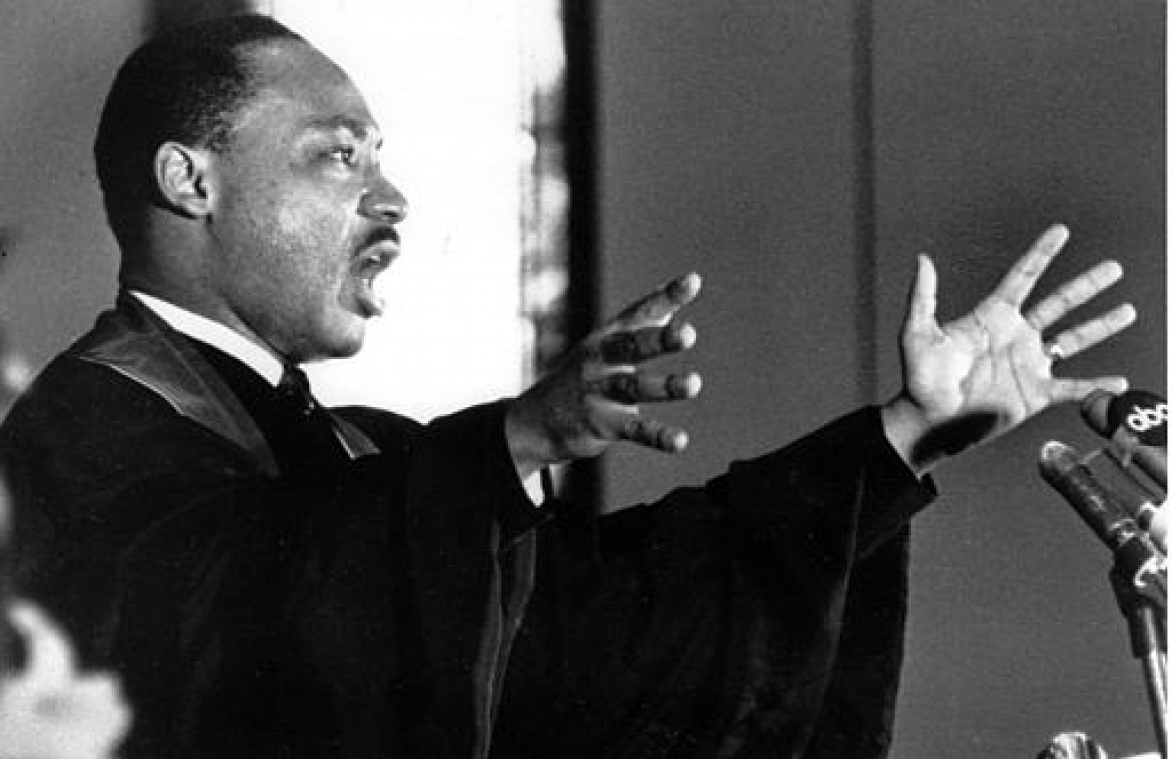On this Martin Luther King Day, 2023, the Free Speech Center remembers and honors an American hero, a man who, despite all the odds against him, peacefully exercised his First Amendment freedoms to worship, speak, write, assemble, and petition. His aim? To help bring about justice and civil rights in the United States for all men and women.
In his final speech before his assassination in April 1968, the Rev. Dr. Martin Luther King Jr. referred to the First Amendment directly in what has come to be known as his “I’ve Been to the Mountaintop” speech:
“Now about injunctions. We have an injunction and we’re going into court tomorrow morning to fight this illegal, unconstitutional injunction. All we say to America is to be true to what you said on paper. If I lived in China or even Russia, or any totalitarian country, maybe I could understand some of these illegal injunctions. Maybe I could understand the denial of certain basic First Amendment privileges, because they haven’t committed themselves to that over there. But somewhere I read of the freedom of assembly. Somewhere I read of the freedom of speech. Somewhere I read of the freedom of press. Somewhere I read that the greatness of America is the right to protest for right. And so just as I say we aren’t going to let any dogs or water hoses turn us around, we aren’t going to let any injunction turn us around.”
The Free Speech Center newsletter offers a digest of First Amendment and news media-related news every other week. Subscribe for free here: https://bit.ly/3kG9uiJ

